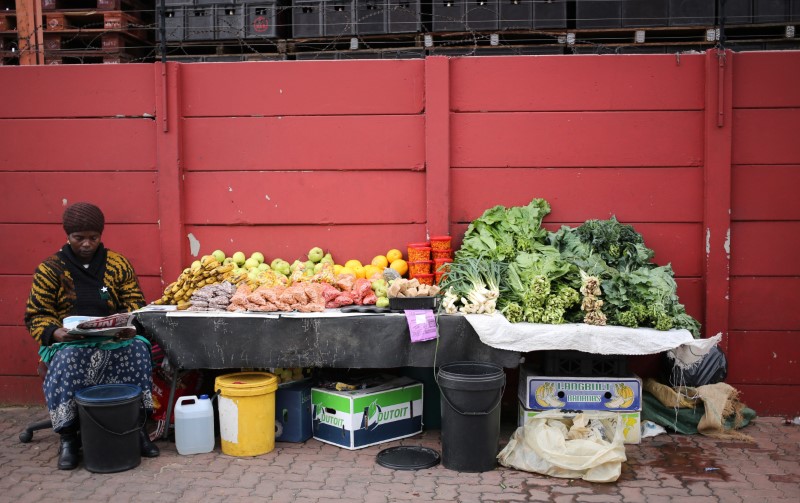By Olivia Kumwenda-Mtambo and Alexander Winning
JOHANNESBURG (Reuters) - Credit rating agency S&P said on Tuesday it was not anywhere near to upgrading South Africa from "junk" status but that stronger per capita economic growth and faster debt stabilization could lift ratings in future.
Ahead of a rating review scheduled for May 25, S&P Global Ratings' sovereign analyst Gardner Rusike said the future rating path would be influenced by whether new President Cyril Ramaphosa follows through on promises to reform the economy.
"We are now probably in a good situation that supports our stable outlook, but we are not yet anywhere near going upwards as far as the rating is concerned," Rusike told a conference in Johannesburg.
"What would provide upside potential is further strengthening of economic performance. As we have indicated we are now in a positive per capita growth rate but we need to be in a much stronger per capita rate that is closer to the average."
S&P rates South Africa's foreign currency debt 'BB' and its local currency debt 'BB+', having downgraded the country to below investment-grade last year, citing a deterioration in the economic outlook and public finances.
Ramaphosa's replacement of scandal-plagued Jacob Zuma as president in February and his promises to fight corruption and reform the economy to spur growth have revived optimism about Africa most industrialized economy.
Underlining the pickup in sentiment, another of the "big three" rating agencies, Moody's, upgraded South Africa's outlook to 'stable' and kept its rating at investment grade on Friday.
An investment-grade rating widens the pool of potential investors in a country's debt and lowers its borrowing costs -- a significant factor for South Africa which has large budget and current account deficits to finance.
Ramaphosa welcomed Moody's decision on Tuesday.
"The decision by Moody's not to downgrade us any further is a great shot in our arm, because we can now face the other rating agencies and get them to begin to review the negative rating they may have given us," he said at the launch of a youth employment initiative.
GROWTH SEEN STRENGTHENING
S&P said on Tuesday it now forecast that South Africa's gross domestic product would grow 2 percent in 2018, doubling its previous estimate. It sees growth of 2.1 percent next year, up from a prior forecast of 1.7 percent.
S&P said its improved forecasts partly reflected stronger investor sentiment after the change in South Africa's leadership and ensuing policy announcements.
But it warned that economic growth of just above 2 percent, or 0.5 percent in per capita terms, is low for a country with South Africa's income levels, and not enough to reduce sky-high unemployment -- currently around 27 percent.
Rusike said faster debt stabilization than the Treasury had outlined in its 2018 budget would also be ratings-positive but would not necessarily lead to an upgrade.
He said: "It is up to South Africa to continue with reforms that have been initiated, and the realization of those reforms is what can be supportive to a higher rating path."
The Treasury said in February's budget that gross debt was seen narrowing to 56 percent of GDP in the 2020/21 fiscal year from nearly 60 percent seen in the October mid-term budget statement.
Since then Ramaphosa has reappointed the finance minister Zuma fired in 2015, sacked some ministers allied to Zuma, put another respected former finance minister in charge of struggling state-owned firms and suspended the head of the revenue service.
